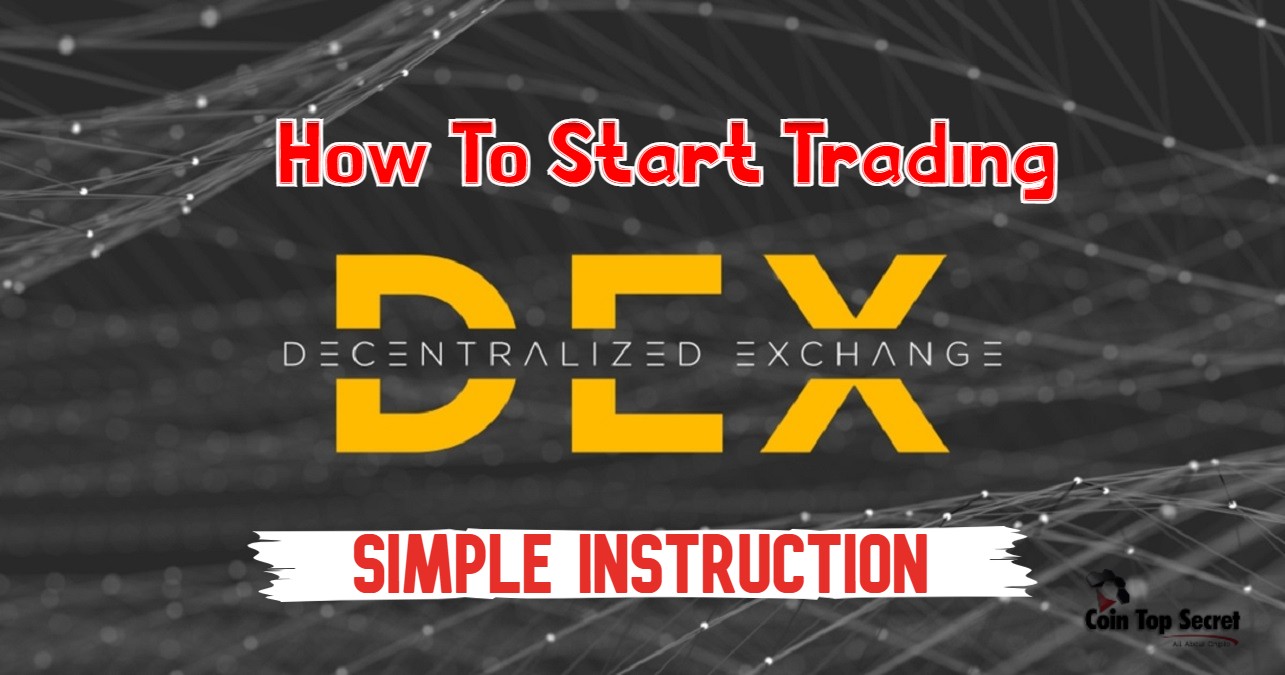Can decentralized trading platforms fully replace traditional crypto exchanges and why you need to be extremely careful when working with DEX
Amid the recent restrictive measures imposed by centralized exchanges, Decentralized Exchange (DEX) platforms have started adding new functionality to attract new users.
For example, decentralized exchange PancakeSwap has added limit orders to the platform, which allow users to sell and buy assets automatically when their value reaches the desired mark. experts explained how centralized exchanges differ from decentralized trading platforms and how to start trading on DEX.
- Why Users Prefer DEX?
The main advantage that decentralized platforms provide is the security of assets, when working on the DEX, the user makes transactions directly from his wallet, and not an exchange account, which is essentially controlled by a third party. This is especially true in the current situation, since centralized exchanges can at any time block Russians’ access to trading and freeze their assets due to sanctions.
- How Decentralized Platforms Work?
Trading on the DEX takes place directly between the participants in the transaction (peer-to-peer) without any intermediaries, when transactions are made, counter orders for buying and selling are executed, and on more advanced sites, the purchase goes through a liquidity pool, which is formed by investors in advance.
The main feature of decentralized exchanges is a smaller supply of liquidity, which makes it difficult to buy the desired number of tokens at a bargain price. and the DEX usually lacks many of the usual tools for traders, such as stop losses, margin trading or landing.
“One of the most notable problems of DEX is the more limited choice of assets, since cryptocurrencies that do not support interaction with smart contracts cannot be traded on decentralized platforms,”
- Features Of Decentralization
Those who switch to DEX from centralized platforms should understand that transactions on decentralized exchanges are transactions in the cryptocurrency network, and fees are charged for them. the amount of commissions differs for different cryptocurrencies and depends on the load on the blockchain. Therefore, when choosing a DEX for trading, it is necessary to take into account the blockchain on which the platform operates and the level of commissions within the network.
- High Level Of Commissions
On decentralized exchanges operating on the Ethereum network, the commission for conducting one transaction as of March 10 is about $15. that fees on the Ethereum network are rarely at this level, usually much higher – in the range of $50-100. In moments of strong market fluctuations, when the network is under maximum load, the commission reaches $200-500.
- Average Commission Level
The optimal level of commissions is observed in the network of the Binance crypto exchange (Binance Chain).on March 10, an operation on the blockchain costs about $0.5. Typically, fees on Binance Chain range from $3 to $5. the disadvantage of the Binance Chain network is the small number of coins available for trading.
- Low Fees
The most economical option is to work in the networks of Polygon, Avalanche, Tron, Arbitrum and others, in these networks the fees are much lower, less than $0.1. However, there are much fewer cryptocurrencies available for trading.
“Recommended starting to work with decentralized exchanges with a small amount, since there are risks of irretrievably losing funds“
“Check your every action on the DEX a hundred times. You can mistakenly send a token to the wrong address, to the wrong exchange, on the wrong network, buy a fake coin, or connect your wallet to a scam site. In all these cases, you will irretrievably lose money.
“advised beginners to use only popular decentralized exchanges such as Uniswap, PancakeSwap, dYdX, 1inch, Compound and others. These platforms have the most understandable interface, and transactions are made automatically“
- DEXs Will Not Replace Centralized Exchanges
At the current stage of development, decentralized exchanges will not yet be able to completely replace centralized trading platforms, this is hindered by the relative complexity of interfaces, lesser popularity and an insignificant set of financial instruments on the DEX.
“The main disadvantage that cuts off a huge segment of users is the inability to interact with fiat currencies.
Decentralized exchanges can only be used as exchange points within the cryptocurrency ecosystem – depositing and withdrawing funds to bank accounts is not available,”
In order to exchange cryptocurrency for fiat, investors will in any case have to use centralized custodial services – exchange offices, online wallets, p2p platforms or traditional crypto exchanges.




